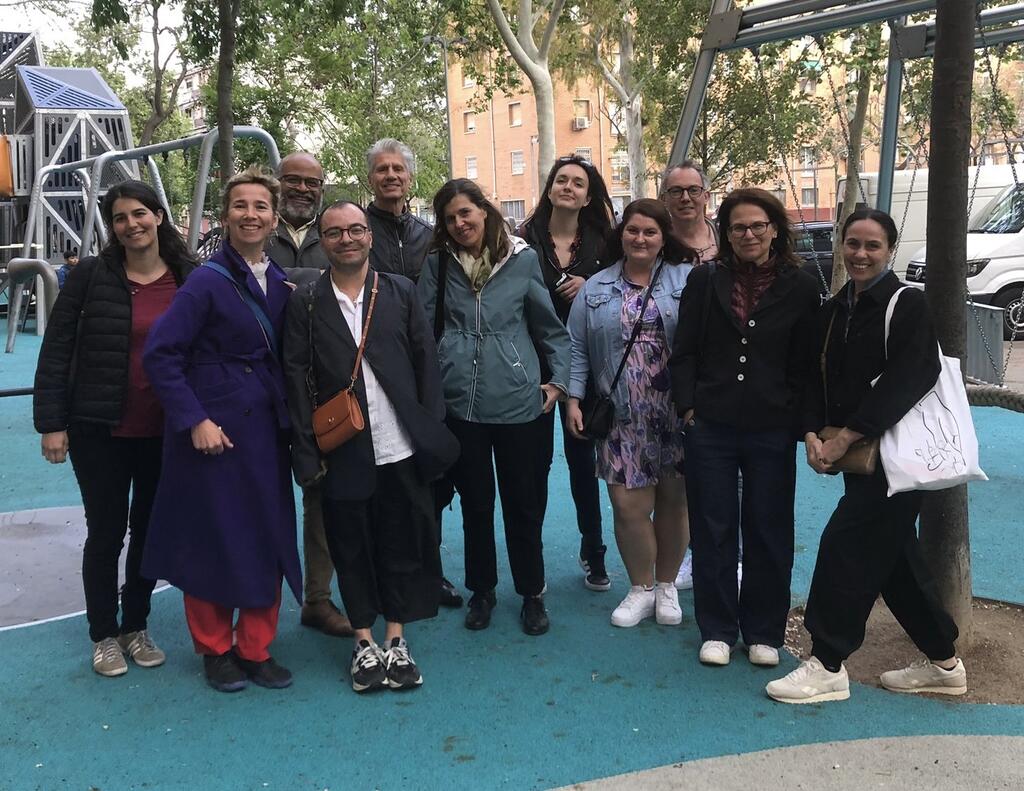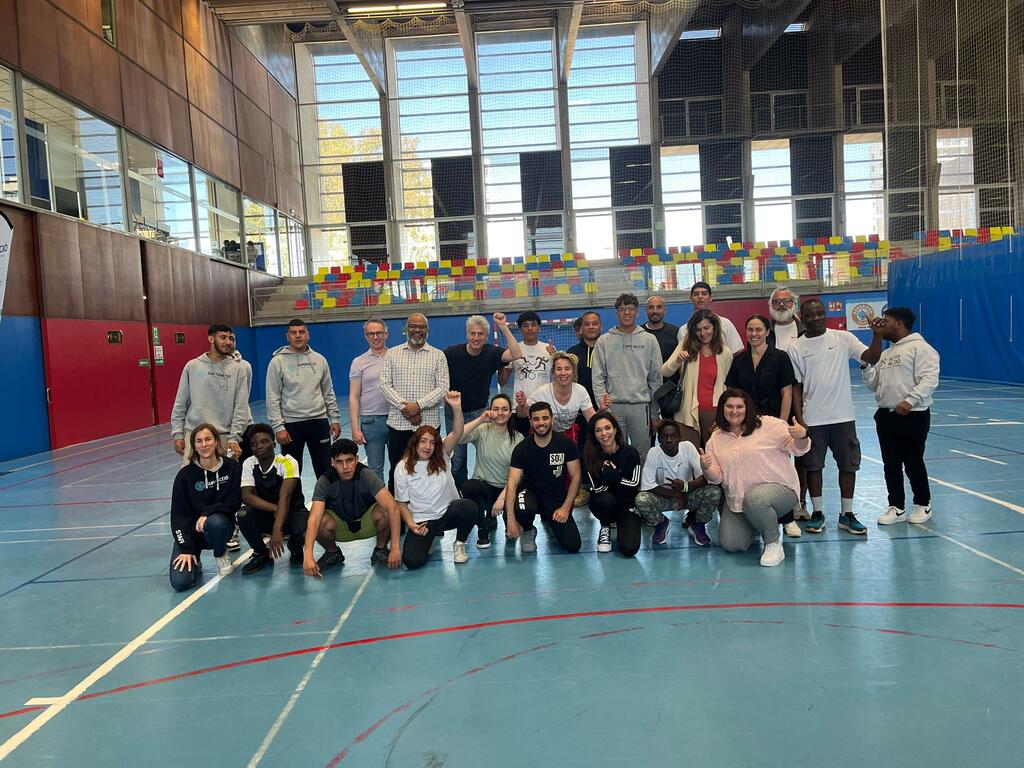Peer Learning Activity in Barcelona
07 May 2024

Last month, our team from NCP joined the SIRIUS 3.0 PLA (Peer Learning Activity) in Barcelona with other SIRIUS partners from Greece, the Netherlands and Croatia. Supported by the European Commission, SIRIUS serves as an advisor to the EU on migrant education. This year's PLA had a special focus on Youth: Intercultural Education and Prevention of Discrimination, which was hosted by Universitat Autònoma de Barcelona.
During the two-day visit in Barcelona (18/19.04.2024) NCP representatives actively contributed to discussions and participated in site visits to witness the implementation of successful practices. Additionally, stakeholders shared invaluable insights and best practices from their countries with other participants. PLA started with a presentation from Artist and KinSite Consultancy director Antonio da Veiga Rocha, who shared his journey of immigrating to various countries and how the experience informs his work. Through Antonio's art, we explored themes related to identity and how it evolves through cultural integration. Anthony discussed how his first-hand experience adapting to new cultures and overcoming social barriers inspired him to found KinSite Consultancy, which aims to clarify workplace diversity and equity practices and individual social relations framework.
Following Antonio’s presentation, we learned about the MiRu project. Through documentary filmmaking, the program creates a platform for refugees and unaccompanied minors to share their stories. What makes MiRu so innovative is that documentary participants are involved in creating visual content and given roles in post-production, allowing them to lead the narrative and fostering a sense of agency and ownership.
We also visited Bernat Jiménez of the Prometeus School Program at the High School Insitut Barri Besos, one of the eight Barcelona high schools involved in the project. Prometeus supports vulnerable students in achieving access to higher education. The project's "holistic" model emphasizes not only academic success but also emotional, technical, psychological, and economic support. Prometeus students motivate each other through mentorship programs, regular talks at their institutions, and participating in extracurricular activities together. Prometeus opens doors to higher education and equips students with the tools and resilience needed to thrive in their academic and professional pursuits. Bernat introduced us to two Prometeus participants who are currently enrolled in university. Both students expressed their gratitude and enthusiasm for the program, describing how Prometeus encouraged them to reach their full potential in school and beyond.
Additionally, we were delighted to meet Pedro Casermeiro, the director of Associació Cultural Gitana Rromane Siklǒvne. Casermeiro shared how Romani Silkovne supports Romani students from Barcelona's historically poor and under-educated Bon Pastor suburb. Romani Silkovne highlights the importance of preserving and celebrating Romani culture while offering practical and academic support for Romani youth.

The last visit was Superacció which acts as an ally to vulnerable youth in Barcelona who face poverty, are undocumented, or experience homelessness. Superacció meets youth where they're at, offering low barriers to comprehensive support. Their services are tailored to each individual's needs and encompass housing and accommodation facilities, a varied program of sports activities, and psychological support intended to address the trauma that often accompanies the circumstances of the migrant youth they support. Superacció believes in the transformative power of sports, especially triathlon training. Their athletic programs have proven that sports offer a positive outlet while teaching dedication and perseverance. Superacció's success demonstrates how we must be willing to try innovative approaches and utilize unconventional tools for socio-educational intervention.